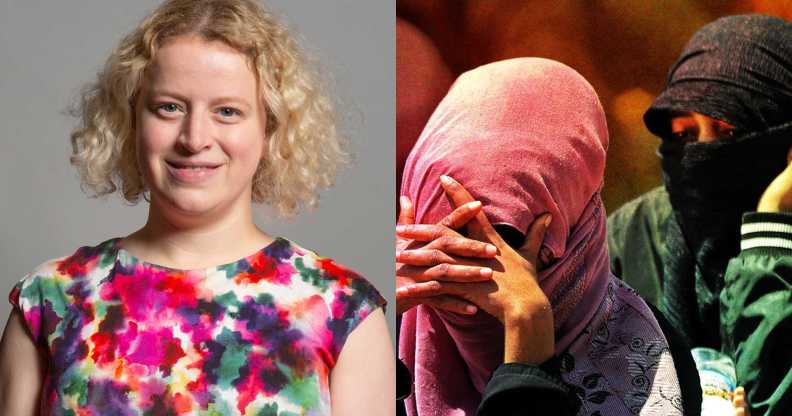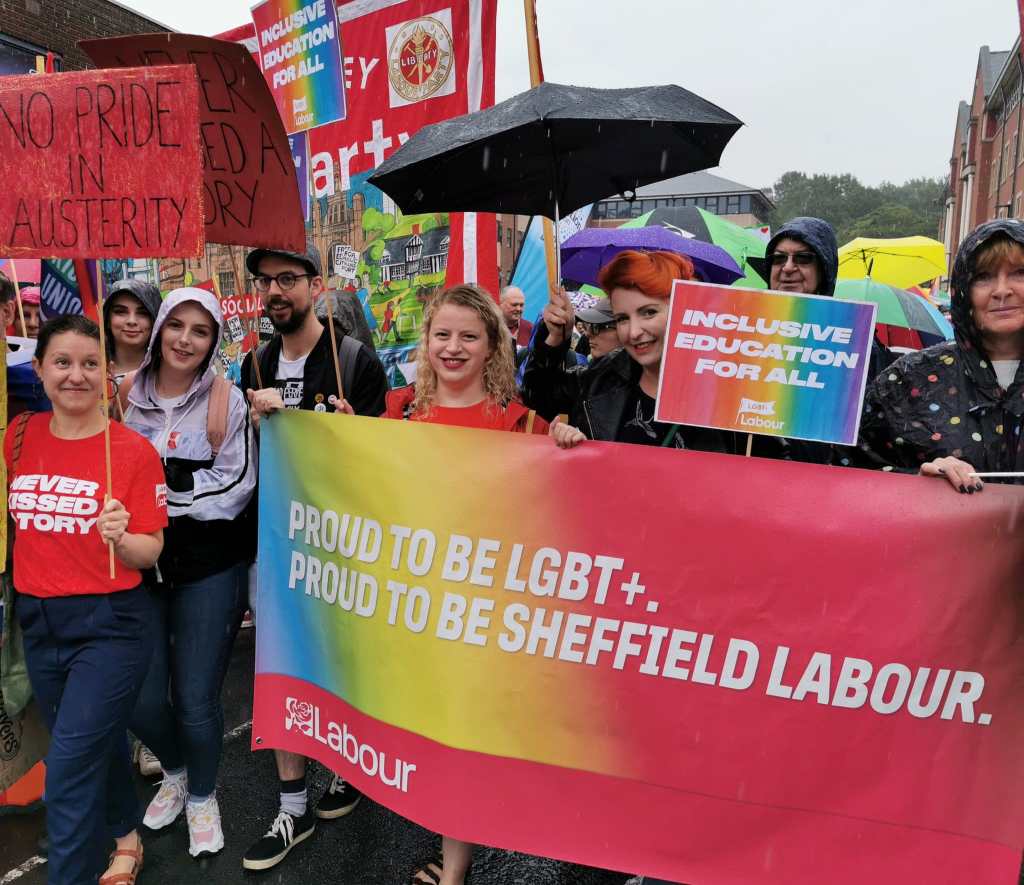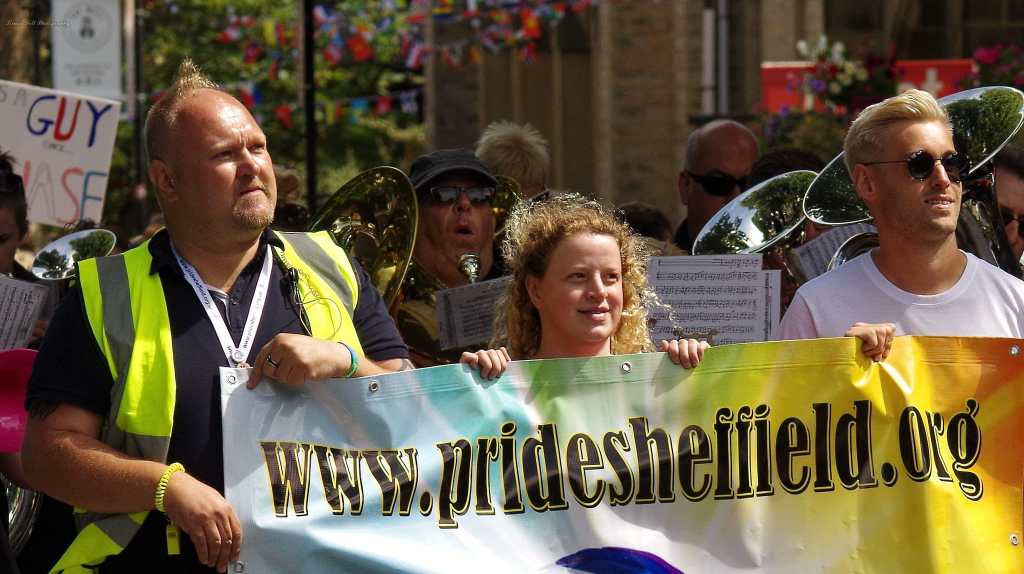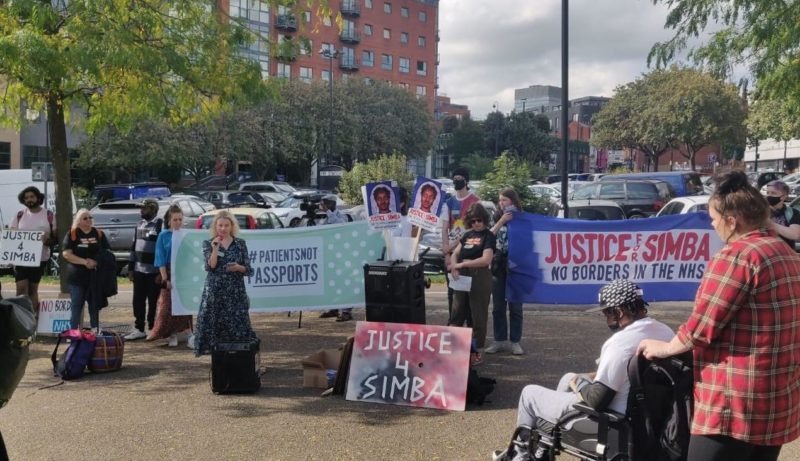Olivia Blake MP: LGBTQ+ refugees suffer most in detention – it’s time to end this cruel practice

Labour MP Olivia Blake argues that immigration detention has a profoundly adverse effect on all refugees – particularly those who are LGBTQ+. (UK Parliament/Getty Images/PinkNews)
Olivia Blake, the openly bisexual Labour MP for Sheffield Hallam, argues that immigration detention has a profoundly adverse effect on all refugees – but particularly those who are LGBTQ+.
This week, we celebrate Refugee Week, a festival founded in 1998 to recognise the creativity and resilience of those seeking asylum. Refugee Week takes place every year around 20 June, which is World Refugee Day, coinciding with Pride Month.

From Section 28 to the AIDs crisis, and now the attacks on drag story time and trans people – and an increasing number of physical assaults against the whole community – LGBTQ+ people understand what it means to face a media furore, state repression and violence for simply existing in the world.
As the headlines tell us about the horrific migrant deaths in the Channel, the inhumane conditions of refugees seeking asylum in detention centres, or the unaccompanied children kidnapped from hotels, it is obvious that this is true for migrants and refugees in our current political climate, too.
As these attacks on both communities have increased, LGBTQ+ refugees sit at the intersection of two identities that have borne the brunt of the vitriol emanating from the dispatch box in Westminster and the editorial desks of legacy media publications.
The overlap of Pride Month and Refugee Week provides us an opportunity to connect these struggles and, together, resist the hostile environment in its totality.
Currently, 70 countries around the world still criminalise same-sex relationships. Yet, those who flee persecution at home and seek to come to the UK to claim asylum are met with increased hostility.
This has only been exacerbated in the last year, as the government first passed the Nationality and Borders Act, and is now in the process of introducing the Illegal Migration Bill, which will make it essentially impossible for most LGBTQ+ refugees to claim asylum.
It is also expected that measures in the bill will lead to a sharp increase in the numbers of people held in detention centres. It will become routine to detain people who arrive irregularly, strip them of many of their current protections and prevent bail applications for the first 28 days of detention.
Despite the evidence that immigration detention has a detrimental effect on people’s mental health, we will see more, and longer, stays in detention, including for LGBTQ+ refugees.

I believe that the practice of immigration detention must ultimately end for everyone. But I also wanted to highlight that it is widely recognised that LGBTQ+ people are particularly vulnerable to harassment, abuse and sexual violence in these settings.
For example, the ‘No Safe Refuge’ report published by Rainbow Migration and Stonewall found that LGBTQ+ people face heightened levels of discrimination and abuse from both other detainees and staff working in the immigration detention facilities.
This is supported by a study conducted by the University of Brighton, which also found that mistreatment of LBGTQ+ detainees remains an issue. The ongoing Brook House inquiry, too, has found evidence of staff mocking and harassing LGBTQ+ detainees, which then led to more bullying from others in the centre. These experiences are re-traumatising for those who have fled their home countries because of persecution and violence based on their sexual orientation or gender identity.
I recently visited a detention centre as part of my role as the co-chair of the All Party Parliamentary Group on Migration. Despite there being some information for LGBTQ+ refugees on display, it was clear to me that the detention facilities are not a safe environment – for any refugee.
Many of those residing in detention will have been through unimaginable trauma. Detention centres have more in common with prisons; they are not a therapeutic, care-centred place. It is hard to imagine how someone can feel safe, or begin the process of healing, while confined there.
There is also a lack of privacy for refugees, who share very small rooms and community spaces with many strangers. This would tax most of us but is especially difficult for those who have been thrown together from different backgrounds, who speak different languages, and who suffer from complex traumas and other health conditions.
There is clear evidence that suggests that it is unsafe for LGBTQ+ people to be in detention. At the very least, the government must immediately stop the detention of LGBTQ+ refugees by including them in an expanded and improved Adults at Risk policy.

The detention estate is not an appropriate place to be for any human being. Instead, we should consider community-based alternatives to accommodate and support newly arrived refugees. Pilot schemes that tested community-based alternatives to detention, commissioned by the UNHCR, have shown that those who were supported in this way had overall better health and wellbeing outcomes.
Refugees must also be given access to public funds and the right to work upon arrival, so that they can start rebuilding their lives, rather than be trapped in endless limbo, as is the case with our current, inhumane – and hugely backlogged – system.
The history of the LGBTQ+ liberation movement shows what can be achieved when we ground our political activism in solidarity and care.
This Pride Month and Refugee Week, it is more important than ever to stand with refugees and campaign together to ensure everyone seeking refuge from war and persecution can do so while receiving the care and support they need to live a safe and fulfilling life.
Refugee Week 2023 runs from 19-25 June.

